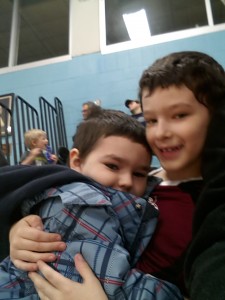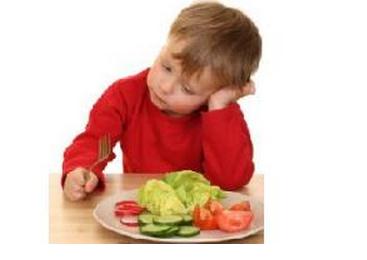I am writing this because I’ve had quite a few people ask me if I want my son to be an advocate like me or what I would hope he’d say. I thought this would be a good time to address those questions.
If you’ve read anything from me in the past, you likely expect the answer from me to be something along the lines of “a positive role model that is respectful and understanding of everyone.”
And yes, should he truly wish to speak up and raise awareness, understanding and acceptance of autism, that is pretty much the exact type of advocacy that I would love to see from him.
I understand that some advocates take the “fight for our rights” approach and that is very much needed as well. I won’t lie. Yes, some get caught up in the battle and it becomes hateful and negative… but this isn’t about that right now.
There’s more kinds of advocacy too. As much as some might disagree, those that fight for health care changes, particularly those surrounding vaccines, are advocates as well. Those that fight to cure their now adult sons and daughters that are still living at home or in a home, they are advocates.
There are even some self advocates that wish to be cured of their own autism. They are self advocates all the same. Even if they might not be sharing the sentiment of the “majority.”
I’ll love and respect my son and be very proud of his efforts no matter which approach he takes.
However, the honest truth is… and it’s kind of hard for me to admit is… I sort of hope that he doesn’t get into the whole thing at all.
That’s not to say that I’ll be disappointed if he does. It would be pretty awesome if he does because I think he can do a lot to improve things.
But I kind of look at it like how we shelter our kids from the 6 o’clock news. Because they don’t need to know about the wars, the murders and the state of our economy. They are happy. Carefree. The world reaches as far as their furthest friend’s house down the street and the worst thing that could happen is that they drop their ice cream cone in the middle of summer.
A self advocate (or even a parent of a child with special needs for that matter) that lives their own struggles, battles and daily disappointments and achievements will have enough in their lives to keep them both busy and content too, depending on how that day goes. For most people, that’s more than enough.
The advocacy world seems pretty great at first, getting positive feedback and support and reaching more and more people with each day’s effort you put forth. But at some point, it changes. You start reaching haters, who “come after you” where ever you may be sharing your thoughts. You get people who don’t just disagree but disagree via attacks and threats. You get people who expect more from you whether it be more effort or more time.
The best advocates are the ones that can deal with these things either by tackling them head on, rising above them or by simply paying no attention and doing what they do regardless.
But it’s taxing. It can wear you down and make you tired.
And at some point, invariably, you start to wonder…. what’s the point?
Do I hope that, should he become a self advocate, that he’ll have the strength and wisdom to over come these hurdles? Of course! I hope I can be strong enough to help him be ready should that time come or to be there for him at that time. I hope even more that he can be a self advocate and not need to experience those hurdles at all.
But the honest to goodness truth is, I would kind of rather him just not need to get to that point.
I’m one of those parents who, probably blindly and even wrongly, wants to shelter his kids from the evils of the world. To not ever have to hurt. To never know what terrible stuff is really happening out there.
But they will. One day, many days… they’ll be made all too painfully aware.
And avoiding the advocacy world won’t stop that. But it will help him to avoid extra hardships. Some extra hurdles that he need not worry about.
Not much would make me more proud than seeing him pick up a metaphorical sign (or a real one for that matter) and fight for himself and others like him, for what ever reasons and in what ever manner he chooses. I believe that he would inspire many and do great things.
But I’d also be quite happy and every bit still just as proud to see him go about his life, focused on what matters most to him, what ever that may be.
Because in the end, that’s what this is all about. Being accepting of what others do, even if it’s not what we did, or what we want them to do. To let them be their own person, whether it’s some other advocate or someone that refuses to be an advocate.
Because if my own advocacy is to mean anything, if it’s to have any value at all, than it has to start with me.
That means having my own hopes and dreams, even hopes and dreams for those that I love, and having the understanding and respect to accept that not only do they not have to fulfill those hopes and dreams of mine but that I will be every bit as happy and proud of of them for having their own hopes and dreams.













